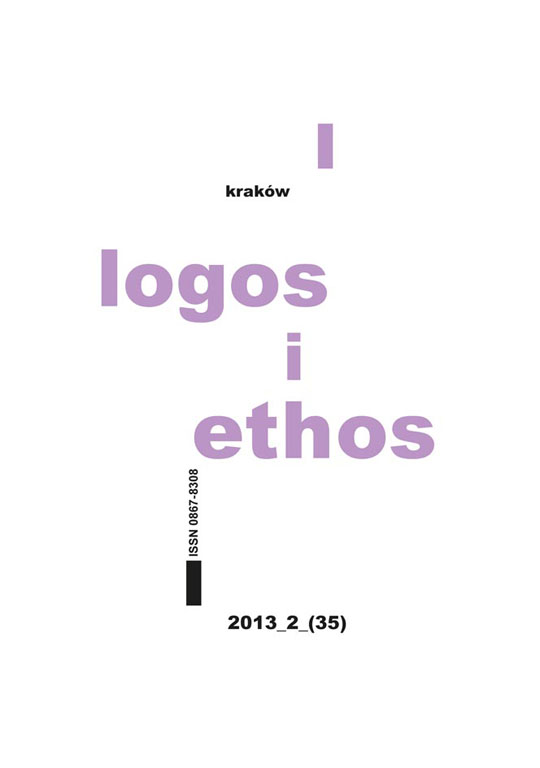Die Ökologie der Person – Kantische Motive des Personbegriffs in Karol Wojtyłas Person und Tat
DOI:
https://doi.org/10.15633/lie.161Słowa kluczowe:
ecology of man, person, liberty, loveAbstrakt
Apart from many legitimate concerns about ecology, the most important contemporary concern should be of anthropological nature and must address the human being as a person (Benedikt XVI). What is man? Are human beings free? What should human beings do? These Kantian questions also describe the main starting points of Karol Wojtyła’s philosophy in The Acting Person.
With regard to the importance of the question (ecology of man) our challenge is divided into three parts. First, man is a person; second, his call is to liberty and last, responsible love is an emanation of personal dignity. In this manner the three important points in Wojtyła’s philosophy (person, liberty, love) are well characterized. The essence of man is his personal dignity as a source for the possibility of free (responsible) decisions – “the act”. The experience of morality is included in the experience of being a person. Wojtyła poses the question “how do I understand who I am throughout my acts?” Like Kant, the author emphasizes the importance of free will, conscientiousness as an obligation, which speaks to the conscious person. I determine myself through my own decision (person´s actions). For Wojtyła, participation in love is the basis of all human personal experiences. “Only persons participate in love”. Participation in the character of the other becomes – in the language of Wojtyła – “the choice of the other person in myself ”.
Pobrania
Opublikowane
Numer
Dział
Licencja
Prawa autorskie (c) 2013 Zbigniew Waleszczuk

Utwór dostępny jest na licencji Creative Commons Uznanie autorstwa 4.0 Międzynarodowe.
Autorzy publikujący w czasopiśmie udzielają jego wydawcy zgody o następującej treści:
- Autor zachowuje autorskie prawa majątkowe do utworu, a jednocześnie udziela wydawcy czasopisma zgody na jego pierwszą publikację w wersji drukowanej i wersji online na licencji Creative Commons Uznanie autorstwa 4.0 Międzynarodowe oraz zgody na wykonywanie opracowań, w tym przekładów.
- Autor ma możliwość udzielania zgody niewyłącznej na opublikowanie utworu w wersji, która ukazała się w czasopiśmie (np. zamieszczenia go w repozytorium instytucjonalnym lub opublikowania w książce), wraz z informacją o jego pierwszej publikacji w czasopiśmie.
- Autor może umieścić swój utwór online (np. w repozytorium instytucjonalnym lub na swojej stronie internetowej) jeszcze przed zgłoszeniem utworu do czasopisma.

